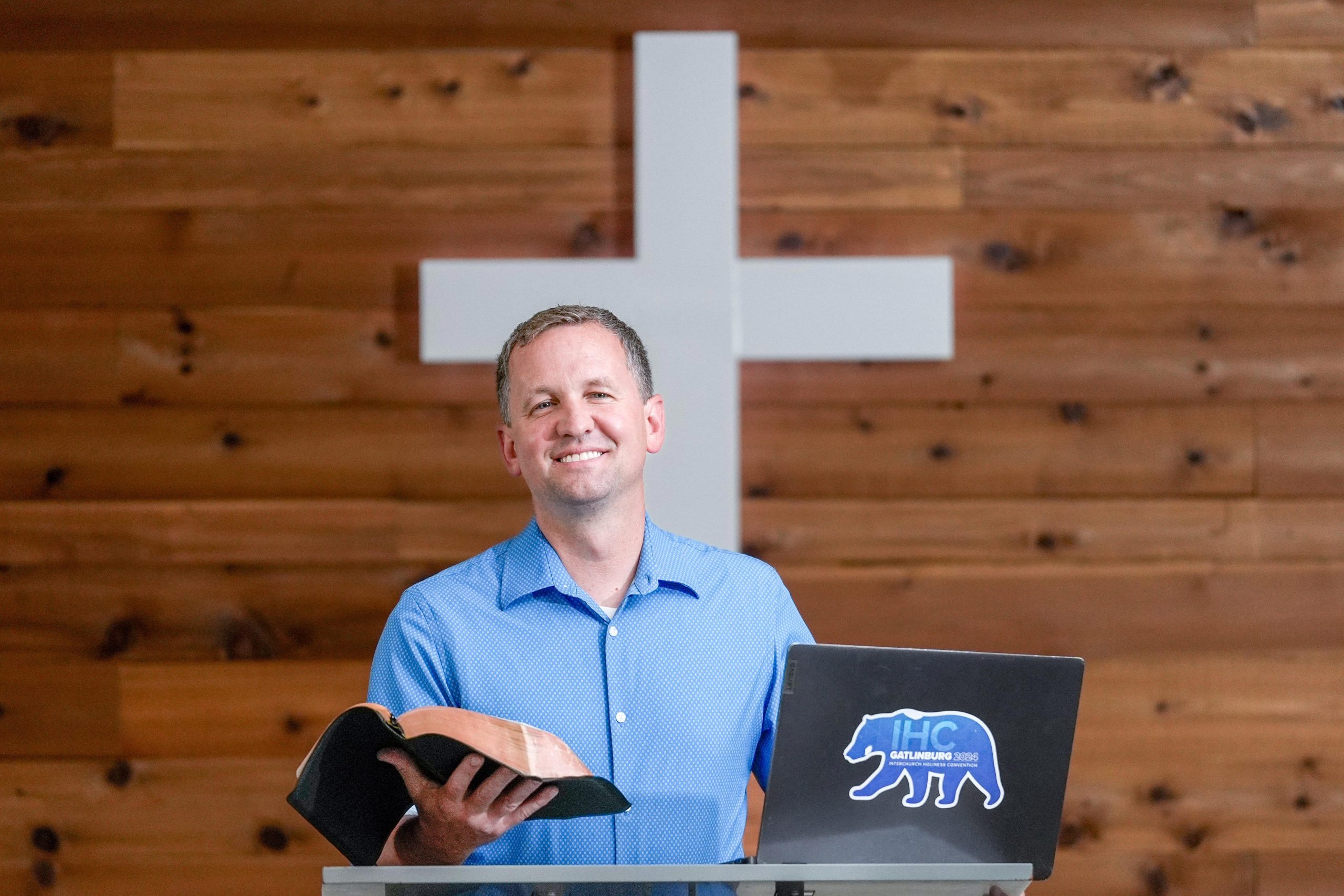The Role of AI in Modern Sermon Preparation
A local pastor, Rev. Darrell Stetler II, recently shared how he uses a unique tool to enhance his sermon preparation. By inputting the Bible chapter of Philippians 2 into a program called “The Sermon Illustrator,” he received several topics such as humility, unity, and servanthood. Alongside these themes, historical references like the Lewis and Clark expedition, ant colonies, symphony orchestras, and the film “Remember the Titans” appeared on the screen.
Stetler, senior pastor of OKC Bible Methodist Church, demonstrated how this AI-powered program can assist ministers in their work. He described it as a time-saving resource that provides two historical story ideas and two quotes in just 30 seconds, offering up to 30 illustration ideas. For him, this tool is akin to having “the best research assistant I’ve ever had.”
Diverse Perspectives on AI in Religious Contexts
Religious denominations have varied views on the use of artificial intelligence. Some see it as a potential tool to support religious goals, while others express concerns about its impact on human connection or ethical implications. Stetler believes that AI will eventually be embraced by the church, noting that similar technologies like the printing press, radio, and online church were once met with skepticism but later became integral parts of religious practices.
He acknowledges that some ministers may hesitate to integrate AI into their ministry due to the risks involved. However, he emphasizes that there are ways to use AI without compromising the core message of the gospel or excluding the Holy Spirit from the process.
Real-World Applications of AI in Ministry
Rev. Luke Simmons, lead pastor at Ironwood Church in Mesa, Arizona, has also found value in using Stetler’s program. He highlights the importance of sermon illustrations in making biblical truths engaging for listeners. While he does not use AI to write sermons, he finds it helpful for adding historical connections to his messages.
Other local pastors have shared their thoughts on the topic. Rev. Lee Cooper Jr., senior pastor of Prospect Missionary Baptist Church, notes that the use of AI could be positive or negative depending on how it’s applied. He stresses the importance of using AI as a tool rather than a crutch.
Rev. Wendy Lambert, senior executive pastor of St. Luke’s Methodist Church, appreciates the creativity of pastors who explore new methods of ministry. While her team prefers traditional methods like commentaries and scripture study, she respects the diversity of approaches as long as they convey God’s love effectively.
Balancing Technology and Tradition
Rev. Rick Stansberry, pastor of Our Lady’s Cathedral, tried using ChatGPT when preparing a homily for the fourth Sunday of Easter. He was impressed by the humor and personal stories generated by the AI. However, he remains cautious about relying too heavily on such tools, emphasizing the importance of maintaining the integrity of pastoral duties.
Stetler, who sells a video course titled “How Pastors Can Use AI for Sermon Prep Without Cheating or Selling Out,” addresses concerns about the ethical use of AI. He argues that AI should be seen as a strategic tool rather than a replacement for human effort. He emphasizes that while AI can help with tasks like formatting and brainstorming, the “heart work” of prayer and reflection must still be done by the pastor.
Ethical Considerations and Future Implications
Despite some pushback, Stetler believes that AI can be a valuable resource for diligent pastors. He warns that it can make lazy preachers even lazier, but for those committed to their calling, it can enhance productivity and effectiveness.
As AI continues to evolve, its role in religious contexts will likely remain a topic of discussion. The challenge lies in finding the right balance between leveraging technology and preserving the spiritual essence of ministry. For many, the key is to use AI as a tool that supports, rather than replaces, the deep connection between faith, scripture, and community.







